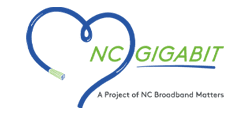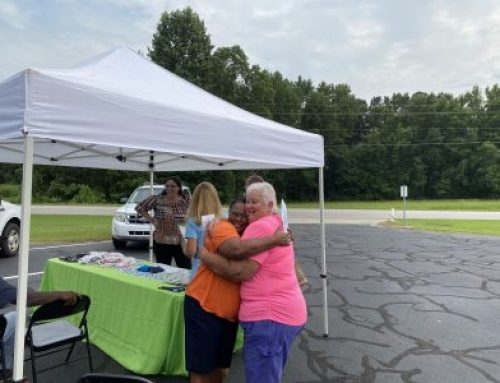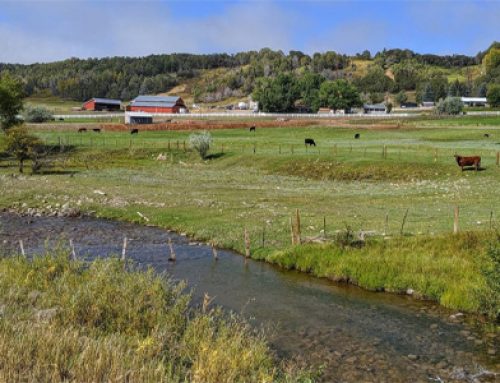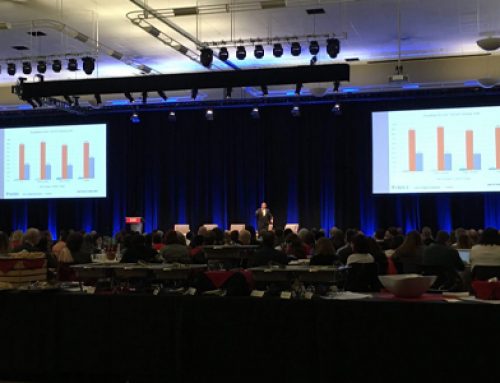By: Christa Wagner Vinson and Alan Fitzpatrick
This post originally appeared on Charlotte Hearts Gigabit.
In early June, Mozilla, probably best known for its adorable vulpine mascot from the Firefox web browser, came to town to talk about the virtues of high-speed gigabit Internet connectivity and what can be done with it.
In addition being a longtime leader in the free and open web movement, Mozilla’s foundation has recently been connecting tech enthusiasts, digital literacy advocates, and other leaders through its Hive Learning Networks and gigabit city-based programs in Chattanooga, Tenn.; Austin, Texas; Lafayette, La.; Eugene, Ore. and Kansas City, Mo.
The Hive’s neighborly outreach, plus the recent arrival of gigabit broadband Internet service to Charlotte, is what brought Mozilla our way. Google Fiber Charlotte and NC Hearts Gigabit, an outgrowth of Charlotte Hearts Gigabit, were pleased to host a small gathering for the half-day workshop.
Kicking things off in the Google Fiber event space in uptown, the workshop got an appropriately techie start by first defining gigabit. So, what is that, exactly? Well, giga is derived from the Greek word for giant, and, yes, it’s pretty big. A gigabit is a thousand megabits, which is a thousand kilobits, which is a thousand bits. 1,000 x 1,000 x 1,000 equals a gigabit, one billion bits per second. (Bit, by the way, is a basic unit of information, and generally refers to speed of upload or download in bits per second. Byte, meanwhile, generally refers to storage capacity – the quantity of data.)
So, while gigabit bandwidth is fast, it’s also capable of accommodating a large volume of data, which means the transfer of data is pretty seamless. No dreaded buffering or blocking like that depicted in the picture to the right).
You (and many people working or playing around you) can do a lot of stuff, fast and reliably, on the Internet with a gig.
Mozilla’s facilitators led the group through a series of activities designed to visualize the possibilities of a world at high speed. They asked the group to rate their awareness of various gigabit-related topics like 4K video and the Internet of Things. They dazzled by showcasing gigabit-enabled success stories from Chattanooga and Kansas City, where next-generation applications being built there are making possible everything from scientific research to artistic collaboration. The power of gigabit, it turns out, is both terrifically abstract and enticingly within reach.
After tantalizing and demystifying, the conversation turned pragmatic: sorting out what is working in the Charlotte region when it comes to using technology to meet community needs – and what isn’t. The event participants, ranging from digital inclusion and workforce developments advocates to smart city wonks and civic techies, each had a stake in the conversation. And they arrived to the meeting already sharing a common understanding that digital networks hold the power to enable more and better outcomes for the communities they serve.
Yet the workshop also offered a welcome opportunity to challenge pre-conceived expectations. Namely, that while the digital revolution has long promised straightforwardly positive advancements in economic development– new jobs created from technological innovation, the decentralization of work to anywhere with an Internet connection – the reality is, it’s been a bit more complicated in the execution.
Moreover, the arrival of gigabit fiber Internet service to the home, scarcely a teenage phenomenon in the fast-moving tech world, has made it seem that – as regions, as cities, as communities – we’re still far from turning the ideal into the real. The upshot, fortunately, is that there are ways to get there – at least when Mozilla is your tour guide.
As Charlotte powers forward with its own gigabit networks, we hope the region will continue to work hard to find solutions for the complexities the Internet Age throws at us. This will mean helping people get jobs wherever they are, and with the skills they already have, using digital platforms; innovating the new financial products that can support broadband expansion, as well as mobile financial services that meet the needs of underserved groups; helping small business deploy technology strategies that make them more productive and competitive; and helping our region win the race for the jobs produced by Industry 4.0 so that we’re talking about up-skilling rather than job killing.
Sure, there’s a lot about the world of gigabit that is whizbang and gee-whiz (witness: augmented reality). And that stuff is pretty marvelous. But, in the end, for community and economic developers and those we serve, the real opportunity is discovering what we actually want out of technology – after all, merely a tool – and how to get it. From application development to community development, and everything in between, we have a lot of work to do.
And, hey, if you’re reading this blog, you are an agent in that change. Charlotte Hearts Gigabit, and its new offshoot, NC Hearts Gigabit, a project of CLIC-NC, look forward to continuing the buzz around the enormous opportunity of the gigabit.
Who knows, we got the Hornets back, maybe we can be a Mozilla Hive City one day, too.
Alan and Christa, along with Catharine Rice, and Deb Watts, are the founding members of NC Hearts Gigabit. Follow us on Twitter here: @NCHeartsGb





